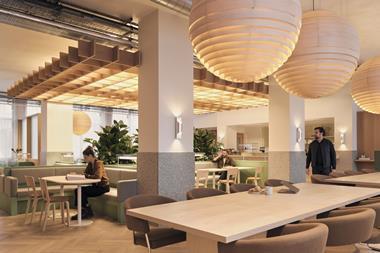The new prime minister is arriving to one of the most daunting in-trays within living political memory. One of the most difficult balancing acts will be about how to intervene to get through the current crisis while also sowing the foundations for long-term, sustainable growth. London could provide an answer.

In the West End, we were delighted to hear praise for London and its potential in the leadership campaign. When both candidates said that you could not level up at the expense of London, and recognised that when London does well so does the rest of the UK, we agreed wholeheartedly.
But the question is how you turn that sentiment into concrete action – and how you put in place the measures that will enable a business-led recovery in London and help the UK fully meet its potential.
London – especially the centre of London – is unique and formidable in the complexity of its ecosystem and the economic power it generates. Central London occupies 0.01% of the UK’s land area and generates 11% of the UK’s total economic output – or a GVA of £211bn. It provides a global draw for tourism and investment. Our unique ecosystem – where business combines with world-class culture, hospitality and visitor attractions – is a vital part of the UK’s soft power.
Central London’s issues persist post-pandemic
We cannot take that ecosystem for granted. The pandemic revealed significant vulnerabilities, and our businesses are by no means out of the woods. In the West End, we face a perfect storm: fewer commuters, fewer visitors, the phasing out of government support, a chronic shortage of staff that has seen West End hospitality businesses lose a fifth of their sales, industrial action effectively locking down London once more and a business rates system that doesn’t provide a level playing field.
Most recently, spiralling energy costs have led to businesses, particularly in the hospitality sector, genuinely wondering whether they can survive the next few months. It would be a tragedy – and a waste – if businesses that were supported during the pandemic were to fail now, and people to lose their jobs, due to a lack of support.
Government cannot do everything, and it certainly cannot turn the clock back to pre-pandemic days. But there are actions it can and should take.
Businesses are crying out for support similar to that given during the pandemic, in the form of business rates relief and VAT reductions, as floated by the last chancellor just a few days ago. Active help in managing energy bills would allow them to stay afloat and continue to keep people employed over the coming months: longer-term measures to increase the energy supply won’t be much use if they’ve had to close their doors by then.
They would like a pragmatic approach to solving the staffing problem – which, given the numbers involved, might need to involve looking again at opening up the jobs market to overseas workers where there is a clear and chronic skills shortage. They would like far-ranging reforms to the system of business rates, so the high street no longer operates at a competitive disadvantage. Above all, they want to feel that the government is on their side, listening – and backing London.
Stop playing politics with London
It is also time for a reset in the relationship between local and national government. The temptation to turn issues such as transport and policing into political footballs is understandable. But with Westminster and City Hall at perpetual loggerheads, who wins? Certainly not the people or the businesses of London. And yet, if politicians are prepared to work constructively and think long term, then that creates the jobs, opportunities and growth the country ultimately needs. To that end, we welcome the recently agreed TfL funding agreement and hope it will deliver growth and stability.
Nobody is doubting London’s ability to recover from difficult days; our entrepreneurialism and our resilience will endure. The question is about how quickly we can come roaring back.
The right government support will be transformative in helping London recover much more quickly, and drive the sort of economic growth that can get the whole of the UK back on its feet. We are doing our best to attract people and to stay open for business. But we cannot do it by ourselves: we need all sides to work together, and keep this the best city in the world to visit, to live and to prosper.
Ros Morgan is chief executive of Heart of London Business Alliance






























No comments yet